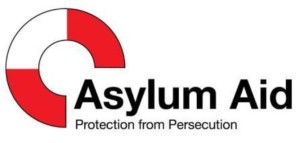- BY Russell Hargrave

Defending quality in the asylum system – three reports from Asylum Aid
THANKS FOR READING
Older content is locked

A great deal of time and effort goes into producing the information on Free Movement, become a member of Free Movement to get unlimited access to all articles, and much, much more
TAKE FREE MOVEMENT FURTHER
By becoming a member of Free Movement, you not only support the hard-work that goes into maintaining the website, but get access to premium features;
- Single login for personal use
- FREE downloads of Free Movement ebooks
- Access to all Free Movement blog content
- Access to all our online training materials
- Access to our busy forums
- Downloadable CPD certificates
 Last week, Asylum Aid published three research reports into the state of legal aid funding for fighting asylum cases. Taken together, they expose the corrosive effect on quality of the switch to the Graduated Fixed Fee (GFF) funding system in 2007 and the threat to the continuation of quality work now – but also maps how government and solicitors can work together to maintain quality in the future.
Last week, Asylum Aid published three research reports into the state of legal aid funding for fighting asylum cases. Taken together, they expose the corrosive effect on quality of the switch to the Graduated Fixed Fee (GFF) funding system in 2007 and the threat to the continuation of quality work now – but also maps how government and solicitors can work together to maintain quality in the future.
The background
The Early Legal Advice Project (ELAP) has been running in the East Midlands UK Border Agency region for more than a year. Building on the positive findings of an earlier pilot in Solihull, ELAP tests the hypothesis that better asylum decisions result when legal representatives are given time and resources to work closely with their client and the decision-maker from the beginning of the asylum claim. The new reports provide complementary evidence for the benefits of this sort of early, quality work, to asylum seekers, legal reps and the government alike.
(1) Justice at Risk
Justice at Risk was published by the Runneymede Trust, in partnership with Asylum Aid. It analyses the impact of the GFF on providers of quality asylum advice, and the demise of large providers such as Refugee & Migrant Justice and the Immigration Advisory Service, as well as numerous much smaller organisations. It outlines the absurd financial incentives GFF creates for legal providers to spend the least possible time on any individual case, and the difficulty sustaining detailed and quality work with asylum applicants.
(2) Rethinking Asylum Legal Representation
Rethinking Asylum Legal Representation was published by Asylum Aid, and looks at the innovations introduced by charities and legal representatives to stretch quality and value-for-money far beyond that covered by legal aid. This includes levering support and resources from commercial firms (such as at Islington Law Centre, where a web-based research tool for litigation cases is being developed), using additional funding to complement LSC payments for each asylum case (as at Asylum Aid, where a ‘quality premium’ allows far more time on each case than LSC funding alone would permit), and pooling expertise across several organisations.
The report makes the case for protecting the areas where quality asylum work is still carried out, and describes the lobbying work with government needed to change policy on legal aid.
(3) Right First Time
Right First Time describes a simple project conducted last year, which could provide a framework for safeguarding quality asylum work in the future. Lawyers from Asylum Aid sat down for a series of meetings with Border Agency decision-makers, to identify simple changes which might help improve relations on all sides and ensure better decisions. These nearly all emphasised the need for funding which would allow representatives to prepare early witness statements and where possible attend asylum interviews. This consensus was consistent with much of what has been seen to work through ELAP, especially in the joint commitment by officials and lawyers to gathering and sharing information much earlier in each asylum claim.
The full ELAP report is expected in Spring this year. Meanwhile, all these reports can be downloaded from the Asylum Aid website: www.asylumaid.org.uk.
